Revolution in the Cafeteria! 4 School Districts Leading the way on Healthy School Lunch

For too many kids, the school cafeteria is a lunchtime wasteland, with few healthy food options to choose from, and entrées that are greasy, salty, and loaded with heavily processed meat and cheese. But things are starting to change. As parents, students, and communities increasingly speak out to demand healthier lunch options, schools across the country are beginning to listen. Here are four public school districts that are leading the way in offering plant-based menu options, and showing that providing a healthy school lunch isn’t just possible, it’s the way of the future.

Ithaca City School District, New York
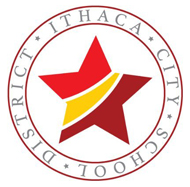 Taste-testing in lunch lines, food presentations in the classroom, after-school cooking classes, and family dinner nights are some of the ways the Coalition for Healthy School Food helped roll out plant-based options in the Ithaca City School District. The “Cool School Food” program, a collaboration between the school district, the Coalition, and Ithaca’s own Moosewood Restaurant, was launched in 2010.
Taste-testing in lunch lines, food presentations in the classroom, after-school cooking classes, and family dinner nights are some of the ways the Coalition for Healthy School Food helped roll out plant-based options in the Ithaca City School District. The “Cool School Food” program, a collaboration between the school district, the Coalition, and Ithaca’s own Moosewood Restaurant, was launched in 2010.
In addition to offering full salad bars, each of the district’s 13 schools serve a plant-based entree once or twice a week at lunch, and a scratch-made Power Hummus is available every day, says Ithaca Child Nutrition Director Beth Krause. “As a school food service director for 25 years, I have seen a significant increase in students making plant-based choices,” she says. “Students and staff love our salad bars, local fruits, and plant-based entrées.”
An important part of the program was introducing new foods and dishes to students, says Amie Hamlin, executive director of the Coalition for Healthy School Food. The nonprofit helped lead classroom presentations which included a slideshow about the food’s cultural background; an opportunity to see, touch, and smell the ingredients, as well as to taste the prepared food; and a group discussion about where food comes from and how food choices impact things like mood and health.
“Adding plant-based entrées takes work: training cooks, introducing the food to the children in an exciting way, making sure the adults are on board,” Hamlin says. “For any school wanting to make these kinds of changes, partnering with an experienced nonprofit can make a big difference.”
Plainfield Community Consolidated School District 202, Illinois
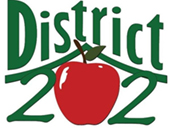 Salad bars and vegan “chicken” nuggets are among the plant-based options offered to middle- and high-school students in Plainfield, Illinois, as part of a new initiative to serve more healthy vegetarian and plant-based food at lunch.
Salad bars and vegan “chicken” nuggets are among the plant-based options offered to middle- and high-school students in Plainfield, Illinois, as part of a new initiative to serve more healthy vegetarian and plant-based food at lunch.
“We’re starting to do this for all the reasons people are mentioning,” said Tom Hernandez, director of community relations for Plainfield Community Consolidated School District 202. “It helps the environment, and it’s also much healthier.” The school district worked with contracted food service provider Aramark to roll out the new plant-based options in September. Assistant superintendent Rick Engstrom has said the new options are healthy, available to anyone who wants to try a new dish, and can help the environment by offering alternatives to meat dishes.
Previously, vegetarian and plant-based options were available only by request. “Now we’re putting it out there and saying, ‘Here you go,’” Hernandez says.
"We had students who voiced their opinions and wanted some vegan options, and that’s what started it all,"
Portland Public Schools, Maine
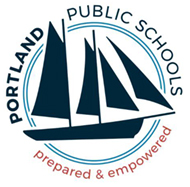 Portland Public Schools in Maine had been offering a cold vegetarian option alongside its hot lunch service for years, and had recently begun providing sun-butter and jelly sandwiches to plant-based students, but Food Service Director Jane McLucas was ready for more. “One of my goals last year was to really look at our vegetarian entrées, because I thought they were boring,” she says. “I knew we could do better.”
Portland Public Schools in Maine had been offering a cold vegetarian option alongside its hot lunch service for years, and had recently begun providing sun-butter and jelly sandwiches to plant-based students, but Food Service Director Jane McLucas was ready for more. “One of my goals last year was to really look at our vegetarian entrées, because I thought they were boring,” she says. “I knew we could do better.”
Knowing that Portland is a culturally diverse city with many ethnic groups, and that schools would be serving children with different allergies and dietary restrictions, McLucas wanted a menu that would be inclusive of all students. When a group of parents approached her about adding vegan options to the menu, and pointed out that plant-based foods would satisfy not only vegetarian students, but also vegans and different cultural groups, they got her attention. “We decided to take the plunge, and change over our vegetarian options to vegan,” she says.
The district’s central kitchen began rolling out new plant-based menu options in September, with hot entrées served four days a week. Options include veggie chili mac, tofu rice bowls, and lentil sloppy joe’s. The program launched in the district’s 10 elementary schools. Students in Portland’s six middle and high schools already have access to a wider variety of plant-based options, including salad bars.
“It’s been a learning curve for myself and my staff, and the community too,” McLucas says. “This is something new. It’s becoming a trend, so I’m glad we’re on the front edge of it.”

Los Angeles Unified School District, California
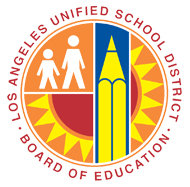 Students in the Los Angeles Unified School District have always been able to request vegetarian or plant-based options from their school cafeteria, but in 2017 the district launched a pilot project to offer plant-based options five days a week in 40 of the district’s more than 600 schools. The program has since grown to 82 schools. “We had students who voiced their opinions and wanted some vegan options, and that’s what started it all,” says Ivy Marx, senior nutrition specialist fort the LAUSD.
Students in the Los Angeles Unified School District have always been able to request vegetarian or plant-based options from their school cafeteria, but in 2017 the district launched a pilot project to offer plant-based options five days a week in 40 of the district’s more than 600 schools. The program has since grown to 82 schools. “We had students who voiced their opinions and wanted some vegan options, and that’s what started it all,” says Ivy Marx, senior nutrition specialist fort the LAUSD.
Menu items include a three-bean vegan chili, impossible burgers, and a plant-based burrito, and menu options are rotated every four months, with new items introduced in response to student feedback. While Marx estimates fewer than 5% of students who eat school lunch select the plant-based option, she still sees the program as a success. “It gives students who’ve never tried vegan entrées an opportunity to try them,” she says. “I’ve been to schools where kids are trying it for the first time at school, and I think that’s fabulous.”
What's Next?
Are you a passionate advocate looking to change school lunch in your town? Download our School Lunch Toolkit for template letters, resources and support to get started!


